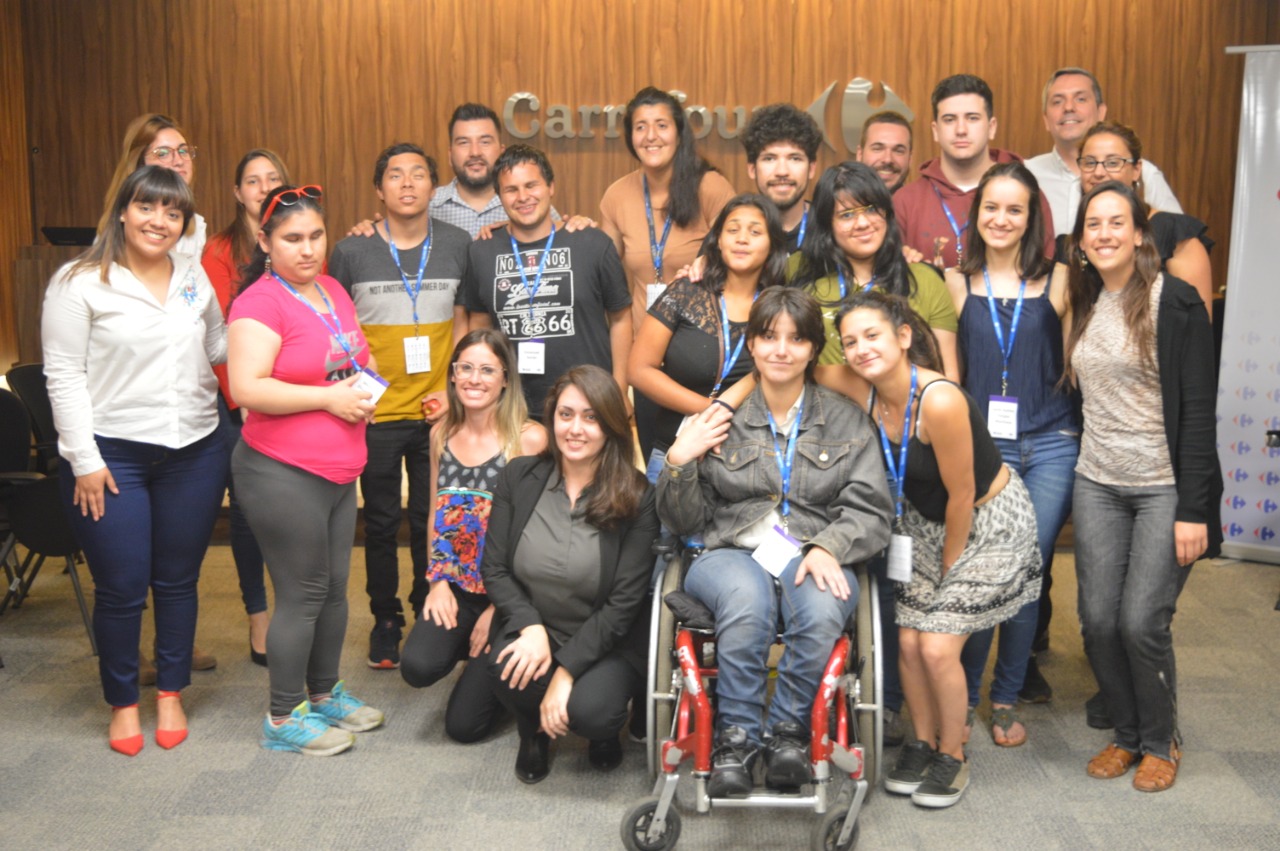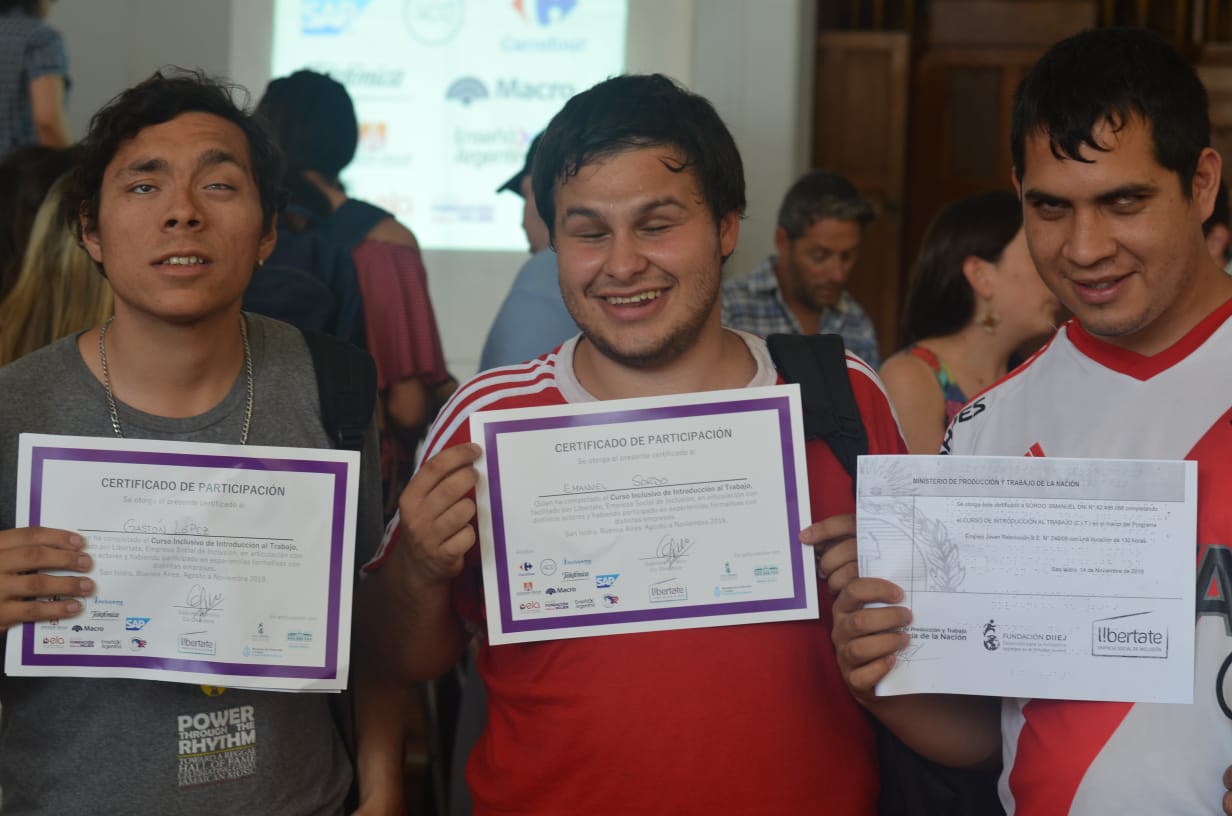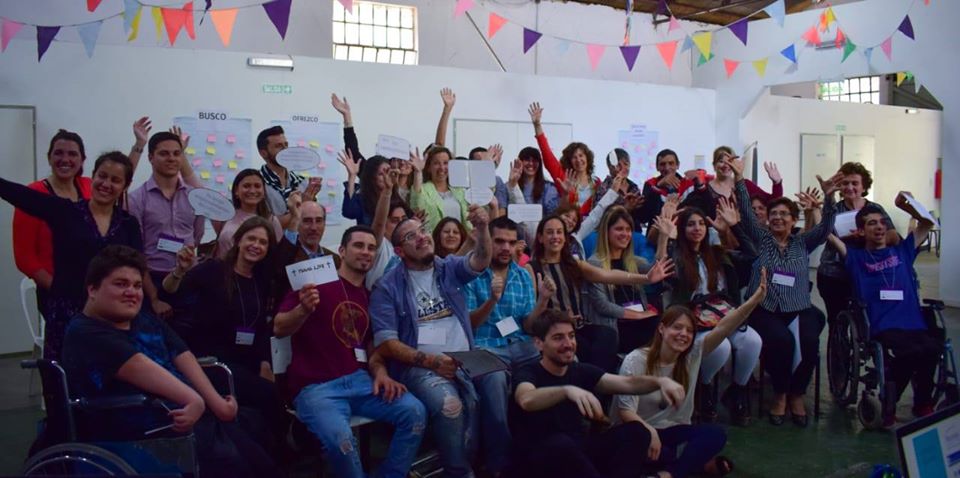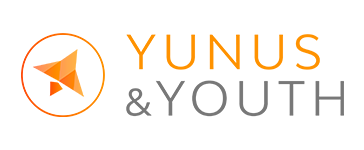When Gabriela speaks, you can tell that her background is that of an activist. She has a tangible sensitivity towards people whose lives are made difficult by their surrounding environments. At some point in the conversation she says: “isn’t there a phrase that says you can achieve anything – but only if you are recognised in your own value, and you are in a safe and supportive environment?”. This idea of fighting exclusion is something central to her work, and to the work of Libertate.
Libertate is a social enterprise co-founded by Gabriela and her colleague Brenda Pignol Ramos. Its focus is to fight for the social and economic inclusion of people with disabilities – to help them enter the labour market, to make sure their immediate environments (including the digital environment) are accessible, and to ultimately help them develop their lives with autonomy and freedom that is afforded to those not afflicted by disabilities.

Gabriela talks a lot about the acute vulnerabilities that someone with disabilities experiences, and talks about how being a woman, being in the LGBT community, or being in poverty exacerbates the exclusion as it compounds the barriers. She mentions that there is a correlation between poverty and disability and quotes a damning statistic that says 80% of those of working age with disabilities are excluded from the labour market. She explains that while there are a lot of programmes that help with accessing the labour market for others who tend to be excluded, these programmes aren’t made to be accessible to everyone.
This is where Libertate comes in. One of the programmes established by the social enterprise is the support of those with disabilities to set up their own businesses. Gabriela admits that many of these are informal businesses due to the barriers presented by the Argentine system to formalise any enterprise. Talking about COVID, Gabriela mentions another project Libertate has been working on involves increasing and encouraging digital accessibility, as a lot of websites do not have features that are usable by everyone. This is a particular problem for those still in school: normal state schools have carried on with lessons online, but the special educational needs schools did not have the capacity to prepare the much more complex materials necessary for accommodating all the forms of physical and psychological disabilities their pupils would have. This is on top of, for example, paused medical treatments, which have disproportionately affected those with disabilities. It’s another clear case of COVID highlighting already existing inequalities and Libertate is trying to address it at least in part by working with companies to improve the accessibility of their online presence. The second part of their recent activity is to address the loneliness caused by COVID, as those with disabilities are at a much higher risk of contracting the virus and of having complications. Libertate is working on different workshops and programmes, and educational kits for households, to connect those very much stuck in their homes. To her it’s not just about productivity or economic inclusion, but also about combatting accumulating mental health issues.

A dream that Gabriela has is to create a certification for companies that are inclusive in their physical inclusivity of access, in their digital presence, and in terms of their social policies, such hiring practice and marketing – what she calls an ‘open culture’. She also would love to set up an incubator for entrepreneurs with disabilities that guides the participants in how to set up properly as an enterprise. The Yunus & Youth Fellowship is giving her the tools to dream big, and she feels the support of her mentors and the team are giving her new wind under her wings. She says that it was very valuable for her to feel that she wasn’t alone, and that the work she was doing is important, valuable and necessary. What Gabriela says she’s mostly gained from the fellowship is support, recognition and kindness – which sounds exactly like what she is trying to offer to people with disabilities through Libertate.
While she discusses the situation for people with disabilities in Argentina, the picture she paints could be read as quite pessimistic. But Gabriela discusses these things as just how things are right now, and talks about them with an assurance that things will change. She talks about young people and says that they will be the future, as they do not have the same barriers created by years of socialisation as people of older generations do. In fact, she mentions that many young people she interacts with see difference as value – and she thinks they will change the world. What Gabriela doesn’t see is that these young people need someone to pave the way and lead them towards a better vision of the world, and she’s already doing it.

